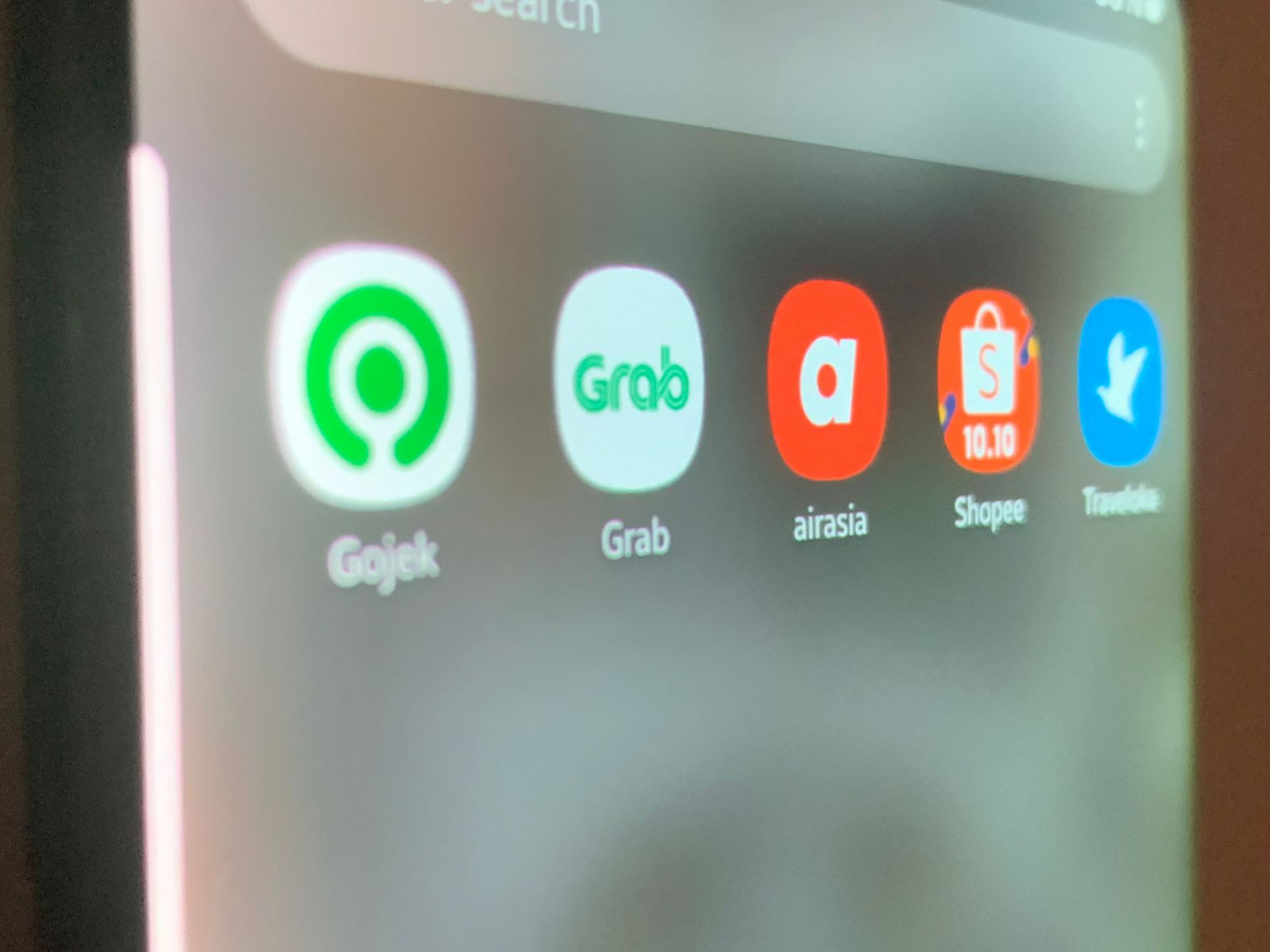Superapp battle heats up in Indonesia
Companies challenging Grab, Gojek as RI’s everyday app
Change Size

F
ive years ago, people might not believe that they would be paying their bills on a ride-hailing app or ordering food from an online travel agent (OTA), but as technology companies aspire to be superapps, the possibilities are endless.
Southeast Asian ride-hailing giants Gojek and Grab started their superapp journey in 2015, when Gojek rolled out its food delivery service GoFood and Grab launched its courier service.
Recently, other companies such as Singapore's Sea Group, Indonesia’s Traveloka and Malaysia’s AirAsia have been challenging the two household names in becoming an all-encompassing service provider.
Becoming a superapp means that consumers would use one application for almost, if not all, their needs, but can such a model work in Indonesia? Will there be a single winner in the superapp battle?
Superapp players and services
“Digital companies are definitely racing to become superapps. They are developing their ecosystems to become bigger, catering to various demands,” Institute for the Development of Economics and Finance (Indef) researcher Nailul Huda told The Jakarta Post on Monday,
The most recent contender in the superapp race is low-cost airline AirAsia, which has been aggressively expanding its digital business in the past 18 months. It entered the Indonesian market through an online beauty marketplace, and it would soon roll out its ride-hailing service, AirAsia Ride.
“I really believe that we can be the biggest ride-hailing company,” AirAsia CEO Tony Fernandes said in a press conference on Wednesday, adding that digital businesses were targeted to contribute 50 percent of AirAisa Group’s revenue by 2025.
Read also: AirAsia eyes ride-hailing, delivery through super app
AirAsia announced on Nov. 4 a partnership with local fintech start-up Kredivo to offer a pay-later option to consumers, inching closer to its superapp ambition.
“This is a common strategy in which superapps do a tie-in or bundle offer with another company to tap into a new market,” Center for Indonesian Policy Studies (CIPS) digital economy researcher Ajisatria Suleiman said on Tuesday.
Meanwhile, online travel agent unicorn Traveloka recently deepened its financial services by offering gold investment in partnership with state-owned pawnshop PT Pegadaian, a collaboration announced on Nov. 5.
Traveloka corporate communications head Reza Amiruil Juniarshah said the company aimed to become a “lifestyle superapp” by offering services from food delivery and bill payments to travel booking and insurance.
“For us, the possibilities are endless. Travel will remain our cornerstone, alongside local services and financial services, and we will keep adding new products and services in line with the continuously growing demand of our customers,” he told the Post on Wednesday.
Payment and motorcycle are key
While the service offerings of superapps differ, they all start with a single core business then gradually build up to complementary services, usually starting with payment services as the common denominator behind all business transactions.
“Payment is the most important. Superapps are developing comfortably in Indonesia because our payment system is still underdeveloped,” Ajisatria of CIPS said, adding that the key of merging various services into one app was to make payment easier.
He went on to say that payment services needed to be safe and seamless even when integrated with third-party services, such as investment and savings, to win users.
Read also: Gojek, Tokopedia merger talks may lead to blooming start-up collaboration
Nailul of Indef echoed Ajisatria’s opinion but added that a vast network of motorcycle drivers was also key to a superapp’s success as in the case of GoTo Group, Grab and Shopee.
“I think it is wise then for AirAsia to tackle ride-hailing before tapping into food delivery in Indonesia,” he said.
Who will win?
While becoming a superapp is the ultimate goal for technology companies, being the fastest horse in that race alone would not secure customer loyalty.
“Those who can offer the most comprehensive and cheapest services will capture people’s hearts,” Nailul said. “People can easily compare prices and Indonesians are still price-sensitive consumers after all.”
However, he acknowledged that speed might help companies reach a high valuation faster, which would help them raise the funding to offer discounts and promotions to gain new users.
Nailul said that if SeaGroup entered the ride-hailing market, the company could become the biggest superapp in Indonesia and even Southeast Asia, following its successful initial public offering (IPO) in 2017 and strong revenue growth in recent years.
SeaGroup, publicly listed at the New York Stock Exchange (NYSE), is the most valuable Southeast Asian public company with a US$185 billion market cap.
“It would be difficult for newcomers to penetrate Indonesia’s ride-hailing and e-commerce market,” he said. “It would also be difficult to budge GoPay, OVO and ShopeePay as the top payment service providers.”









